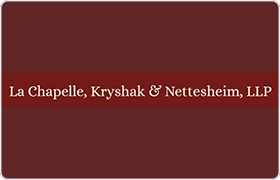 Hewitt Eminent Domain Lawyers, Wisconsin
Hewitt Eminent Domain Lawyers, Wisconsin
Sponsored Law Firm
-
 x
x

Click For More Info:
-
La Chapelle, Kryshak & Nettesheim, LLP
262 W Grand Ave Wisconsin Rapids WI 54495» view mapReal Estate Law Passionate and Dedicated Attorneys
The law firm of La Chapelle, Kryshak & Nettesheim, LLP, has provided legal services to the people of central Wisconsin for over a century.
800-886-1251
Not enough matches for Hewitt Eminent Domain lawyer.
Below are all Hewitt Real Estate lawyers.
Sponsored Lawyers
1-3 of 3 matches
Estate, Divorce & Family Law, Real Estate, Business, Power of Attorney
Nicholas practices law in central Wisconsin, serving clients in Wood County, Portage County and the surrounding area. He focus on estate planning, business law and family law. His goal is to assist my clients in planning for and protecting the future. Education is a big part of his practice, and he enjoys helping people learn about the law and how it affects them on a daily basis. Nicholas is always looking for ways to improve how he is meeting his clients needs, and he's looking forward to doing so long into the future.
(more)


 Nicholas Abts Wisconsin Rapids, WI
Nicholas Abts Wisconsin Rapids, WI AboutLa Chapelle, Kryshak & Nettesheim, LLP
AboutLa Chapelle, Kryshak & Nettesheim, LLP Practice AreasExpertise
Practice AreasExpertise

